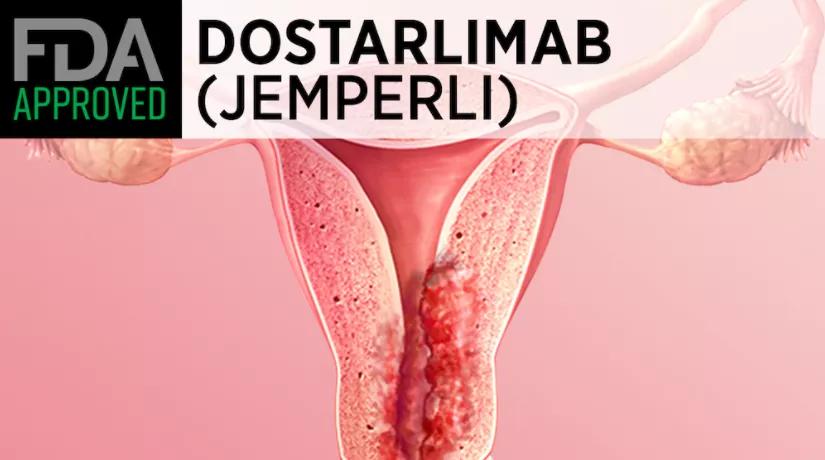Eight new antibody drugs Approved by FDA in 2021
- Oregon Reverses Course: From Decriminalization to Recriminalization of Drug Possession
- Why Lecanemab’s Adoption Faces an Uphill Battle in US?
- Yogurt and High LDL Cholesterol: Can You Still Enjoy It?
- WHO Releases Global Influenza Vaccine Market Study in 2024
- HIV Infections Linked to Unlicensed Spa’s Vampire Facial Treatments
- A Single US$2.15-Million Injection to Block 90% of Cancer Cell Formation
Eight new antibody drugs Approved by FDA in 2021
Eight new antibody drugs Approved by FDA in 2021. Up to now, the US Food and Drug Administration (FDA) has approved the listing of eight antibody drugs, including two ADC drugs.
01. Evinacumab

On February 11, 2021, the FDA approved Evinacumab-dgnb (trade name EVKEEZA TM ) for the first time for the treatment of children 12 years and older or adults with familial homozygous hypercholesterolemia (HoFH).
Evinacumab is a fully human monoclonal antibody targeting the IgG4 subtype of Angiopoietin -like Protein 3 ( ANGPTL3), which can bind to and inhibit ANGPTL3. ANGPTL3 is a member of the angiopoietin-like protein family. It is mainly expressed in the liver and plays a role in regulating lipid metabolism by inhibiting lipoprotein lipase (LPL) and endothelial lipase (EL). Evinacumab inhibits ANGPTL3 and reduces LDL-C, HDL-C and triglycerides (TG) by rescuing the activity of LPL and EL.
Previously, the FDA granted evinacumab breakthrough drug designation ( BTD), orphan drug designation and priority review qualification. This approval is based on the positive results of the Phase III ELIPSE-HoFH study (NCT03399786). The recommended dose of evinacumab is 15 mg/kg intravenously, once every 4 weeks, developed by Regeneron.
Common adverse reactions ( ≥5%) of Evinacumab are nasopharyngitis, flu-like illness, dizziness, rhinorrhea, and nausea.
02. Dostarlimab

On April 22, 2021, the FDA approved dostarlimab-gxly (trade name JEMPERLI) for the first time as a monotherapy for the treatment of disease progression, mismatch repair defects (dMMR) recurrence or recurrence during or after platinum-containing chemotherapy. Patients with advanced endometrial cancer.
Dostarlimab is a humanized anti-PD-1 monoclonal antibody that binds to the PD-1 receptor and blocks its interaction with the ligands PD-L1 and PD-L2. It is worth mentioning that dostarlimab is the first A PD-1 therapy approved for the treatment of endometrial cancer, and also the seventh PD-(L)1 drug approved by the FDA.
Previously, the FDA granted dostarlimab breakthrough drug status ( BTD) and priority review status. This approval is based on the positive results of the single-group, multi-cohort GARNET study data (NCT02715284).
The most common adverse reactions ( ≥20%) of Dostarlimab are fatigue/asthenia, nausea, diarrhea, anemia, and constipation. In addition, Dostarlimab can cause serious diseases with immune-mediated side effects, including inflammation of healthy organs, such as pneumonia, colitis, hepatitis, endocrine diseases, and nephritis.
03. Effect of Loncastuximab
On April 23, 2021, the FDA approved loncastuximab tesirine-lpyl (trade name Zynlonta) for the first time for the treatment of relapsed or refractory (r/r) large B-cell lymphomas that have received 2 or more systemic therapies (LBCL) Adult patients, including diffuse large B-cell lymphoma (DLBCL), DLBCL originating from low-grade lymphoma and high-grade cell lymphoma.
Zynlonta is an antibody-conjugated drug ( ADC) that targets CD19 . It consists of a humanized anti-human CD19 monoclonal antibody and pyrrolobenzodiazepine (PBD ) dimer cytotoxin through a connector. Coupled. Once combined with cells expressing CD19, loncastuximabtesirine will be internalized by the cell, and then release cytotoxin, the toxin can irreversibly bind to DNA, thereby generating strong inter-chain cross-links that prevent DNA strand separation, thereby disrupting replication and other necessary The process of DNA metabolism ultimately leads to cell death.
Previously, Zynlonta received accelerated approval through the priority review process. This accelerated approval is based on positive data from the key LOTIS-2 clinical trial.
In the pooled safety population, the most common adverse reactions ( ≥20%) of Zynlonta were thrombocytopenia, elevated γ-glutamyltransferase, neutropenia, anemia, hyperglycemia, elevated transaminases, fatigue, Hypoproteinemia, skin rash, edema, nausea, and musculoskeletal pain.
04. amivantamab
On May 21, 2021, the FDA approved for the first time amivantamab-vmjw (trade name RYBREVANT) for the treatment of disease progression during or after platinum-containing chemotherapy and insertion of epidermal growth factor receptor (EGFR) gene exon 20 Patients with mutated metastatic non-small cell lung cancer (NSCLC).
Amivantamab is a bispecific antibody that simultaneously targets EGFR and cMET. It can disrupt the signaling function of EGFR and MET by blocking ligand binding and degrading EGFR and MET in the exon 20 insertion mutation model. EGFR and MET are in tumors. The presence of the cell surface also allows immune effector cells ( such as natural killer cells and macrophages) to target tumor cells to kill through antibody-dependent cytotoxicity (ADCC) and phagocytic mechanisms, respectively.
It is worth mentioning that amivantamab is the first targeted therapy approved by the FDA for the treatment of EGFR exon 20 insertion mutations. This approval is based on the positive results of the Phase I CHRYSALIS study ( NCT02609776). The recommended dose of amivantamab is based on baseline body weight. It is given once a week for the first 4 weeks, the first dose is given over 2 days, and after 4 weeks, it is maintained once every 2 weeks.
Among patients treated with RP2D dose amivantamab ( n=114), the most common adverse events (TEAE) during treatment were skin rash (86%), infusion-related reactions (IRR , 66% ), paronychia (45%) ). Other adverse events were stomatitis (21%) and itching (17%).
05. Aducanumab
On June 7, 2021, the FDA approved aducanumab-avwa (trade name ADUHELM) for the first time for the treatment of patients with Alzheimer’s disease.
Aducanumab is a monoclonal antibody that targets beta amyloid. The accumulation of beta amyloid plaques in the brain is an important pathophysiological feature of Alzheimer’s disease. Aducanumab was approved through the accelerated approval process and is the first new drug approved by the US FDA for the treatment of AD since 2003. This approval is based on the results of three independent clinical trials, reaching the surrogate endpoint of amyloid beta plaque reduction in the brain. These results support Aduhelm’s accelerated approval. The recommended dose of aducanumab is 10 mg/kg, administered once every 4 weeks.
Previously, the FDA has granted fast track qualification ( FTD) to aducanumab . In accordance with the terms of accelerated approval, the FDA has required Bojian to conduct a new randomized controlled clinical trial to verify the clinical efficacy of the drug. If the trial fails to confirm the clinical efficacy, the FDA may initiate a procedure to withdraw the approval of the drug.
The most common adverse reactions of Aducanumab ( incidence of at least 10% or higher compared to placebo): ARIA edema, headache, ARIA-H microbleeds, ARIA-H superficial iron deposition, and falls.
06. Anifrolumab
On July 30, 2021, the FDA approved anifrolumab-fnia (trade name SAPHNELO) for the first time for the treatment of moderate to severe adult patients with systemic lupus erythematosus (SLE) who are receiving standard therapies.
Anifrolumab is a fully human monoclonal antibody targeting subunit 1 of type I IFN receptor, which can block the activity of type I IFN. Type I IFN such as IFN-α, IFN-β and IFN-κ are cytokines involved in the regulation of SLE inflammatory pathways. Type I IFN plays an important role in the pathogenesis of SLE. About 60-80% of adult patients with active SLE express type I IFN-induced gene levels.
This approval is based on the efficacy and safety data of two phase 3 clinical trials named TULIP ( NCT02446912 and NCT02446899 ) and phase 2 clinical trials named MUSE (NCT01438489). The recommended dose of Anifrolumab is 300 mg intravenously every 4 weeks.
Anifrolumab obtained global rights by AstraZeneca in 2004 through an exclusive license and a cooperation agreement with Medarex . The license of anifrolumab for the treatment of SLE is also undergoing regulatory review in the European Union and Japan. In China, AstraZeneca has obtained an implied license for the clinical trial application for Saphnelo injection submitted by AstraZeneca according to category 1 of therapeutic biological products, and it is planned to be developed for moderate to moderate to Treatment of severely active systemic lupus erythematosus.
The most common adverse drug reactions of Anifrolumab ( incidence rate ≥5% ) are nasopharyngitis, upper respiratory tract infection, bronchitis, infusion-related reactions, herpes zoster, and cough.
07. Tisotumab vedotin
On September 20, 2021, the FDA approved Tisotumab vedotin-tftv (trade name TIVDAK) for the first time for patients with recurrent or metastatic cervical cancer who progressed during or after chemotherapy.
Tisotumab vedotin a target tissue factor ( tissuefactor , TF ) antibody drug conjugate (A the DC ), a reference TF tumor angiogenesis and signaling proteins, the vast majority of cancer patients and in many other Overexpressed in solid tumors ( including ovarian, lung, pancreas, colorectal, and head and neck cancers ). Based on the high expression and rapid internalization of TF factor in many solid tumors, TF has become an ideal target for the development of ADC drugs.
This approval is based on the efficacy and safety data of the pivotal Phase I inno vaTV204 study. The recommended dose of Tisotumabvedotin is 2 mg/kg intravenously every 3 weeks.
Tisotumab vedotin was jointly developed by Seattle Genetics and Genmab, combining Genmab’s TF-targeted monoclonal antibody Tisotumab and Seattle Genetics’ ADC technology.
The most common (≥25%) adverse reactions of Tisotumab vedotin include hemoglobin reduction, fatigue, lymphopenia, nausea, peripheral neuropathy, alopecia, epistaxis, adverse conjunctival reactions, bleeding, leukopenia, increased creatinine, dry eye, Increased prothrombin international standardized ratio, prolonged activated partial thromboplastin time, diarrhea and skin rash.
08. Tezepelumab
On December 17, 2021, the FDA approved Tezepelumab-ekko (trade name Tezspire ) for the first time as an additional maintenance therapy for the treatment of pediatric and adult patients with severe asthma ≥12 years of age.
Tezepelumab is one kind of thymic interstitial lymphopoietin (the TSLP) targeting monoclonal anti body, the TSLP is an epithelial cell factor, in asthma plays a key role in inflammation. Tezspire was approved through a priority review process. In September 2018, the US FDA granted tezepelumab a breakthrough drug designation (BTD) for the treatment of severe asthma without eosinophilic phenotype . It is worth mentioning that in the treatment of severe asthma, Tezspire is the only biological agent that has no phenotype (such as eosinophils or allergies) or biomarker restrictions.
The approval is based off the key phase III NAVIGATOR trial of efficacy and safety data. The recommended dose of Tezepelumab is 210 mg subcutaneously every 4 weeks. Tezepelumab was jointly developed by Amgen and AstraZeneca .
The most common adverse reactions (≥ 3%) of Tezepelumab are pharyngitis, joint pain, and back pain.
Eight new antibody drugs Approved by FDA in 2021
(source:internet, reference only)
Disclaimer of medicaltrend.org



